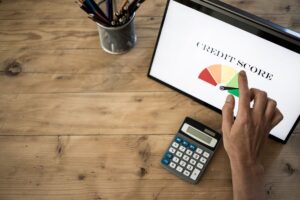If you have already taken or are searching for a personal loan, you’ve probably noticed that loans must be paid back in full, with interest, which can be extra daunting. However, there is some minor lee-way in paying back loans.
What Happens When You Stop Repaying On Your Personal Loan?
The exact result of what occurs when you stop repaying your loan is different for each individual because it is based on the loan terms and when the first payment was missed. However, there is a general timeline as to what exactly ensues.
0 to 30 Days After the First Missed Payment
The earliest a loan payment can be missed is when the credit bureaus report the missing payment after the billing cycle has passed. Billing cycles tend to be 30 days.
Depending on the loan terms, you may be subject to fees and penalties if your payment is even one day late. These fees and penalties can vary from small amounts like $25 to large amounts like 5% of the outstanding loan amount.
If possible, you should bring the account current before the billing cycle is complete to prevent the late payment from damaging your credit score and being penalized.
No Payment for 30 to 60 Days
Your account is considered “delinquent” when the payment is 30 days past due. This means that your lender can report the missed payment to the credit bureaus, and this negative mark will be on your credit report for around seven years.
However it is possible to get the mark removed from your report, but it is not easy and can be pricey:
- Dispute the information with the credit bureau
- Initiate a discussion directly with the reporting business
- Hire a professional credit-repair service
- Get credit counseling
- Pay for delete
- Write goodwill letter
- Simply wait it out
No Payment for 60 to 90 Days
Your lender will continue to try and contact you to request the payment.
No Payment for 90 to 120 Days
Once missed payments have accrued for three to six months, depending on your lender, your account transitions from “delinquency” to “default” status. “Default” status on a loan means you have failed to repay the loan according to the terms on your loan agreement.
No Payment for 120 Days or More
When no payments have been made for six months or more, though some lenders will do this sooner, the lender will usually “charge-off” your account. When a “charge-off” is disclosed on your credit report, it indicates that the lender has given up trying to collect money from you.
Then, usually, the lender will sell the debt to a third-party collection agency. This does not mean you are free from repaying your debt. This only means that now the collection agency will take over attempting to collect your outstanding payments rather than the lender.
How Does Not Paying a Personal Loan Affect Your Credit Score?
When one has late payments or does not pay their loan, this signals to lenders that you cannot afford or are unwilling to pay your debts. The exact results are specific to your payment history, but being only 30 days late on a payment can result in dropping your credit score by 100 points.
The longer that payments are missed and the worse status applied to your account, the worse the damage is to your credit score. If the lender “charge-off”s your account, this can result in another 100-point deduction.
If the collection agency that takes over your account successfully sues you, the court might garnish your wages which will give you less income to rely on, and cause you to fall behind on other payments, leading to worsening your credit score even more.
Find Your Next Personal Loan At Cash Link USA
If you are looking for fast cash and live in either Texas, Kansas, Missouri, Tennessee, or Wisconsin, our loans at Cash Link USA are designed with you in mind! Every day our team helps people get out of tight financial situations.
On top of that, applying for a personal line of credit with Cash Link USA is simple! Learn more about your personal loan and what you qualify for by contacting us today!










